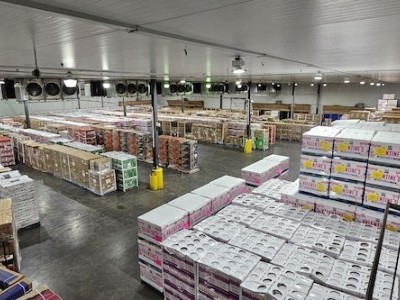Europe signals pandemic made green agenda a security priority
Senior European Union officials signaled that sustainability has been elevated to a top security priority, after the viral outbreak exposed the bloc’s vulnerability to global supply chains.
A “circular economy will make us less dependent and boost our resilience,” European Commission President Ursula von der Leyen told EU lawmakers in Brussels. “This is not only good for our environment but it reduces dependency by shortening and diversifying supply chains.”
Bottlenecks and barriers in global trade of goods raging from food to medical supplies have alarmed the EU in the aftermath of the pandemic, highlighting how the region—which produces few raw materials—is overly reliant on supplies from abroad. Proposals to develop circular economy rules, which oblige companies to preserve and recycle materials, have thus been potentially given additional momentum.
“Investing in large scale renovation, renewables, clean transport, sustainable food and nature restoration will be even more important than before,” von der Leyen said. “This is the lesson we need to learn from this crisis.”
While it’s nearly impossible for the EU to feed itself with its own agricultural products or supply its heavy industry with all the materials needed, circular economy legislation may force European companies to be more efficient in how they manage resources. EU trade ministers held a call on Thursday to debate how to advance the bloc’s “strategic autonomy.”
“We need to look at how to build resilient supply chains, based on diversification, acknowledging the simple fact that we will not be able to manufacture everything locally,” EU trade chief Phil Hogan said on the call.
Green Deal
EU officials in Brussels and several governments have sought to reassure that the virus crisis, and the looming recession, won’t derail the region’s ambition to become the world’s first climate-neutral continent by 2050. Countries including Germany, France, Italy, Austria and Spain have joined forces to link economic stimulus measures with support for the bloc’s ambitious Green Deal.
Efforts to recover from the pandemic should encourage replacing polluting infrastructure with clean solutions, help electrify transport and cut fossil fuels, EU climate chief Frans Timmermans wrote in an article with Bertrand Piccard, the Swiss entrepreneur and pilot who circumnavigated the world in a solar-powered plane.
“Instead of using the stimulus packages to support ‘business as usual’—locking in obsolete economic models, and investing in assets that will soon be stranded—we should invest in the new economy to come out of the crisis in better shape than we went into it, fit for the future: sustainable, inclusive, competitive and prepared,” they wrote in the article published by the Euractiv website.
Europe is discussing emergency measures worth more than half a trillion euros to help mitigate the economic impact of the pandemic that grounded flights, shut factories and triggered harsh limits on public life. EU heads of state have pledged a green focus in a package to reboot the economy.
The crisis hit less than three months after von der Leyen unveiled the details of an ambitious strategy to eliminate greenhouse-gas emissions by the middle of the century, decouple growth from resource use and make everything from trade to the design of cities and agriculture more sustainable.
Following an economic slump, a decline in revenue and risks of insolvency, some governments and businesses started calling for delays or even scrapping the Green Deal. Timmermans and Piccard, the founder of the Solar Impulse Foundation, argued such calls were unjustified, stressing that a green shift would create many more jobs and stronger economic growth.
“This is why it is a false contradiction to say that the Green Deal is a luxury we cannot afford,” they wrote. “The floods, droughts, wildfires, sea rise, and desertification are going to hit us hard. Moreover, retreating nature and melting permafrost will confront us with more unknown viruses.”
The technologies to put the economy on a sustainable track already exist, they wrote. What investors need now is easier access to investment, public procurement rules aligned with the Paris Agreement on climate change, and favorable environmental regulations that create a need for these solutions.
Similar Stories

C.H. Robinson now accepting applications for annual carrier scholarship program
View Article
Beyond Disruption: Proactive steps to strengthen supply chain resilience
View ArticleShipBob’s 2025 State of Ecommerce Fulfillment Report provides insights into Merchants’ Global, Omnichannel Supply Chains
ShipBob, a leading global supply chain and fulfillment platform for SMB and Mid-Market e-commerce merchants, today released its fourth annual State of Ecommerce Fulfillment report. The report is based on…
View Article
Realterm expands European footprint in the Netherlands by acquiring a strategic final mile asset from M7 Real Estate
View Article
ITS Logistics partners with TAT to combat human trafficking through Silver-level sponsorship
View Article
Alterra IOS adds four industrial outdoor storage sites In Dallas-Fort Worth MSA
View ArticleGet the most up-to-date trending news!
SubscribeIndustry updates and weekly newsletter direct to your inbox!





